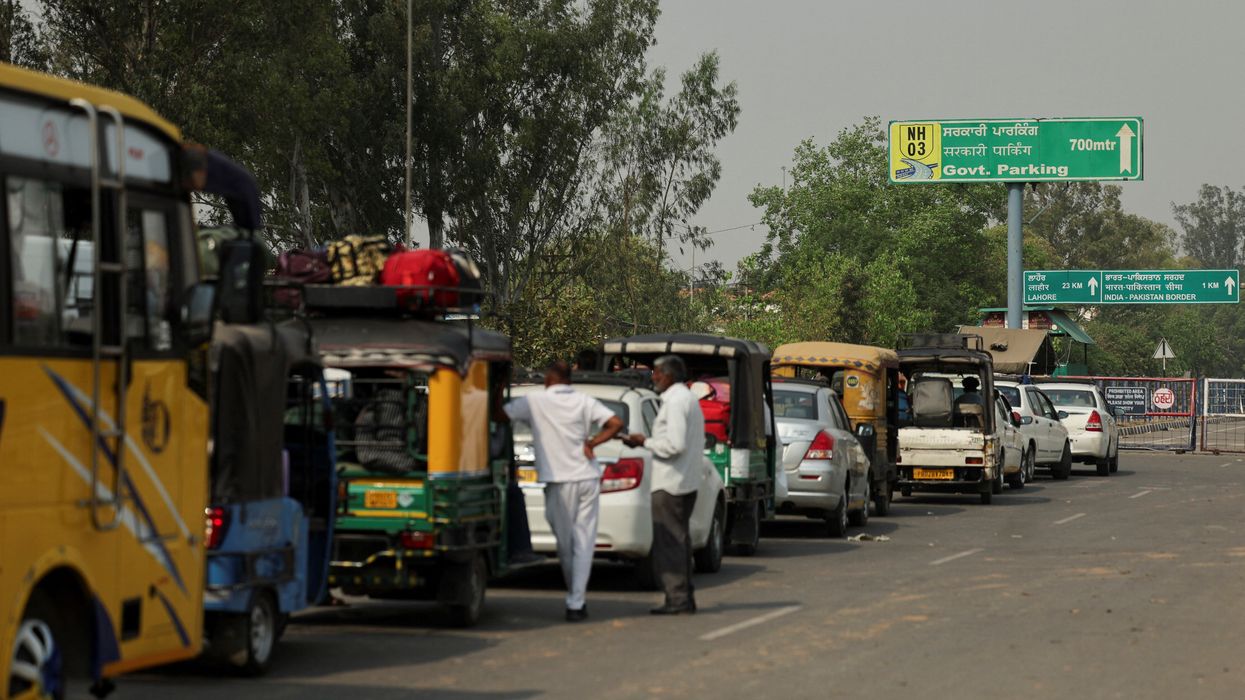INDIA has banned the import of goods originating from or transiting via Pakistan following the killing of 26 tourists in Indian-administered Kashmir.
The ban was announced by India’s Directorate General of Foreign Trade and takes immediate effect. “This restriction is imposed in the interest of national security and public policy,” the notification said.
The attack took place last week in the Pahalgam area of Kashmir valley. Indian authorities have blamed Pakistan for supporting the terrorists involved in the attack. Pakistan has denied any involvement and warned of a possible military response from India.
Pakistan said it has “credible intelligence” that India intends to launch military action. In response, Pakistan has taken retaliatory steps including halting all border trade, closing its airspace to Indian carriers, and expelling Indian diplomats.
ALSO READ: India wants Kashmir attackers brought to justice, Jaishankar tells US
It also warned that any attempt to block the flow of river water under a decades-old treaty would be seen as an act of war. Trade between the two countries had already declined in recent years.
On Saturday, Pakistan's military said it conducted a training launch of a surface-to-surface missile system. “Pakistan today conducted a successful training launch of the Abdali Weapon System — a surface-to-surface missile with a range of 450 kilometres,” the military said.
ALSO READ: India and Pakistan’s military strength compared amid Kashmir tensions
The statement said the launch aimed to ensure “operational readiness of troops and validating key technical parameters, including the missile's advanced navigation system and enhanced manoeuvrability features.”
On Friday, Pakistan’s Chief of Army Staff General Syed Asim Munir led a meeting with top commanders about the “current Pakistan-India standoff”, according to a military statement. Munir “underscored the critical importance of heightened vigilance and proactive readiness across all fronts”.
ALSO READ: Pakistan says it has credible intelligence of imminent Indian military strike
Following the April 22 attack in Pahalgam, Indian prime minister Narendra Modi said he had given the military “full operational freedom” to respond and vowed to pursue those responsible “to the ends of the Earth”.
Pakistan has denied it was involved in the attack.
It has also warned of an imminent air strike from India and said it would respond to any aggression with force.
ALSO READ: UK and US call for calm as India-Pakistan tensions rise
Since the attack, both countries have expelled diplomats and shut border crossings. Indian defence sources said the two sides have exchanged gunfire for nine consecutive nights along the Line of Control.
Kashmir, a Muslim-majority region of about 15 million people, is claimed in full by both India and Pakistan and has been the cause of several wars since the partition in 1947.
(With inputs from agencies)





